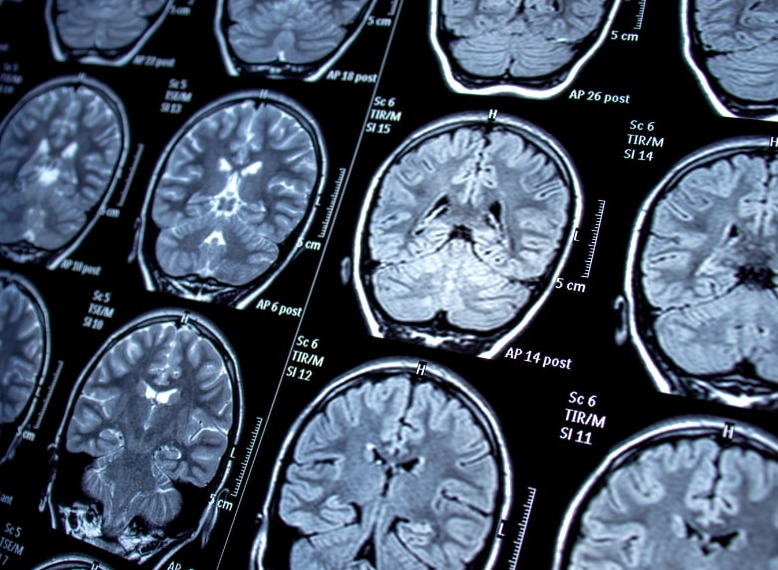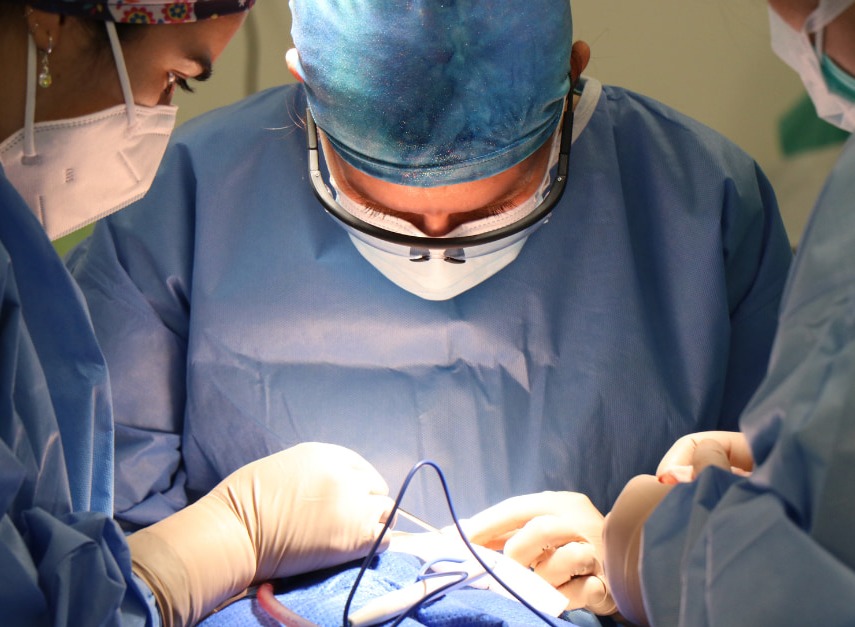- Home
- Forums
- Epilepsy Forum
- Research and useful tips - Epilepsy
- Natural Treatments for Epilepsy: Do They Work?
Patients Epilepsy
Natural Treatments for Epilepsy: Do They Work?
- 17 views
- 0 support
- 1 comment
All comments

lesmal
AmbassadorGood advisor
![]()
lesmal
Ambassador
Last activity on 06/07/2025 at 14:20
Joined in 2018
1,493 comments posted | 79 in the Epilepsy Forum
73 of their responses were helpful to members
Rewards
-
Good Advisor
-
Contributor
-
Messenger
-
Committed
-
Explorer
-
Evaluator
I've never believed in herbal/natural treatment in epilepsy in all the 45 years I've had epilepsy.
Natural treatment may alleviate the extent of the seizures and side effects of medication, but it doesn't STOP them or cure epilepsy! There is little scientific proof that it does.
I tried acupuncture when my epilepsy was first diagnosed, but again this had no effect on the seizures. Due to so many weird beliefs at that stage and lack of knowledge, I was even sent for hypnosis! This of course had no effect and was just another way of pushing the patient away with no proper medical or scientific information.
At long last I have control of my seizures; perseverance, understanding and the trial of several medications has finally helped to find the correct one and dosage!
See the signature
Les
Give your opinion
Members are also commenting on...
Articles to discover...
Medication fact sheets - patient opinions...
Subscribe
You wish to be notified of new comments
Your subscription has been taken into account








Margarita_k
Good advisor
Margarita_k
Last activity on 07/10/2020 at 11:39
Joined in 2016
1,195 comments posted | 30 in the Epilepsy Forum
2 of their responses were helpful to members
Rewards
Good Advisor
Contributor
Messenger
Committed
Explorer
Evaluator
Epilepsy is traditionally treated with antiseizure medications. These medications may not work for everyone, and they come with a risk of side effects.
Some people with epilepsy turn to natural treatments and alternative therapies to help relieve their symptoms. From herbs and vitamins to biofeedback and acupuncture, there are a number to choose from.
Although some natural treatments are backed by a modest amount of research, many aren’t. There’s far less evidence supporting natural treatments for epilepsy than conventional medicine.
If you’re interested in adding something new to your epilepsy treatment regimen, speak with your doctor. They can help you assess the potential benefits and risks, as well as advise on next steps. You may find that some natural treatments can complement your current treatment plan.
1. Herbal treatments
With an increasing market and public interest, herbal treatments have soared in popularity. There seems to be an herb for every ailment.
Some of the most commonly used herbs for epilepsy are:
- burning bush
- groundsel
- hydrocotyle
- lily of the valley
- mistletoe
- mugwort
- peony
- scullcap
- tree of heaven
- valerian
There’s little scientific proof that herbal remedies successfully treat epilepsy. Most evidence is anecdotal. According to a 2003 study, a handful of herbal remedies used in traditional Chinese, Japanese Kampo, and Indian Ayurveda medicine have shown anticonvulsant effects. Still, there are no randomized, blind, controlled studies to support their benefits.
Herbs sometimes cause unpleasant side effects such as headaches, rashes, and digestive problems. Although some herbs might help epilepsy, others may worsen your symptoms.
Herbs to avoid
- Gingko and St. John’s wort may interact with antiseizure medications.
- Kava, passionflower, and valerian may increase sedation.
- Garlic may interfere with your medication levels.
- Chamomile may prolong the effects of your medication.
- Schizandra may cause additional seizures.
- Herbal supplements containing ephedra or caffeine may worsen seizures. These include guarana and kola.
2. Vitamins
Certain vitamins may help reduce the number of seizures caused by epilepsy. Keep in mind that vitamins alone don’t work. They may help some medications work more effectively or reduce your necessary dosage. Follow your doctor’s instructions before taking vitamin supplements to prevent a possible overdose.
Vitamin B-6
Vitamin B-6 is used to treat a rare form of epilepsy known as pyridoxine-dependent seizures. This type of epilepsy usually develops in the womb or soon after birth. It’s caused by your body’s inability to metabolize vitamin B-6 properly.
Although the evidence is promising, more research is need to determine whether vitamin B-6 supplementation benefits people with other types of epilepsy.
Magnesium
Severe magnesium deficiency may increase seizure risk. Older research suggests magnesium supplementation may reduce seizures. A 2012 hypothesis published in Epilepsy Research supports this theory. Researchers indicate that randomized, controlled trials are needed to better understand magnesium’s potential effects on epilepsy.
Vitamin E
Some people with epilepsy may also have a vitamin E deficiency. A 2016 study found that vitamin E increases antioxidant abilities. This research also suggested it helps decrease seizures in people with epilepsy whose symptoms aren’t controlled by conventional drugs. The study concluded vitamin E may be safe to take with traditional medicines for epilepsy. More research is needed, however.
Other vitamins
Medication used to treat epilepsy may also cause biotin or vitamin D deficiency, and worsen your symptoms. In these cases, your doctor may recommend vitamins to help manage your condition.
Infants with seizures caused by cerebral folate deficiency may benefit from folinic acid supplementation. Folic acid supplementation in people with epilepsy and folate deficiency from other factors may cause more harm than good. Take it only under your doctor’s supervision.
3. Dietary changes
Certain dietary changes may also help decrease seizures. The best-known diet is the ketogenic diet, which focuses on eating a higher ratio of fats. It’s considered a low-carb, low-protein diet. This sort of eating pattern is thought to help decrease seizures, although doctors don’t know exactly why.
Children with epilepsy are often put on the ketogenic diet. Many people find the restrictions challenging. Still, this type of diet might complement other treatment measures to help reduce seizures.
In 2002, John Hopkins Medicine created a modified Atkins diet as a low-carb, high-fat alternative to the ketogenic diet for adults with epilepsy. The organization indicates that recent studies show the diet lowers seizures in almost half of those who try it. No fasting or counting calories is required. A decrease in seizures is often seen in just a few months.
4. Self-control and biofeedback
Some people with epilepsy try to control their brain activity to reduce the rate of seizures. The theory is that if you can detect symptoms of an impending seizure, you may be able to stop it.
Many people with epilepsy experience aura symptoms about 20 minutes before a seizure occurs. You may notice unusual smells, see strange lights, or have blurry vision.
You may feel symptoms for several days leading up to the event. These symptoms include:
- anxiety
- depression
- fatigue
- bad headaches
Self-control methods are used to prevent or decrease the intensity of the seizure once it arrives. There are several techniques, all of which require good concentration and focus. Examples are:
- meditation
- walking
- immersing in a task
- sniffing a strong odor
- literally telling the seizure “no”
The problem with these methods is that there isn’t a single technique to stop a seizure. And there isn’t a guarantee that any of them will work every time.
Another approach involves biofeedback. Like self-control measures, the purpose of the process is to take control of your brain activity. Biofeedback utilizes electrical sensors to alter brain waves. At least one study found that biofeedback significantly reduced seizures in people with epilepsy who couldn’t control their symptoms with conventional drugs.
Physical therapists commonly use biofeedback. If you’re interested in this procedure, seek a professional with credentials.
It may be difficult to manage your condition with self-control and biofeedback alone. Both procedures require time, persistence, and consistency to master. If you decide to go this route, be patient. Don’t reduce or stop taking any prescribed medications without your doctor’s approval.
5. Acupuncture and chiropractic care
Acupuncture and chiropractic treatments are sometimes considered alternatives to conventional epilepsy treatment.
The exact way acupuncture helps isn’t understood, but the ancient Chinese practice is used to help ease chronic pain and other medical issues. It’s thought that by placing fine needles in specific parts of the body, practitioners help the body heal itself.
Acupuncture may change brain activity to reduce seizures. One hypothesis is that acupuncture may keep epilepsy in check by increasing parasympathetic tone and changing autonomic dysfunction. The practice sounds good in theory. But there isn’t scientific evidence to prove that acupuncture is an effective epilepsy treatment.
Spinal manipulations in chiropractic care may also help the body heal itself. Some chiropractors use specific manipulations to help control seizures on a regular basis. Like acupuncture, chiropractic care isn’t widely viewed as an effective form of epilepsy treatment.
What you need to know before using any alternative medicine:
Source: healthline.com
_____________
If you have already used alternative treatments, don't hesitate to share your experience in this discussion.